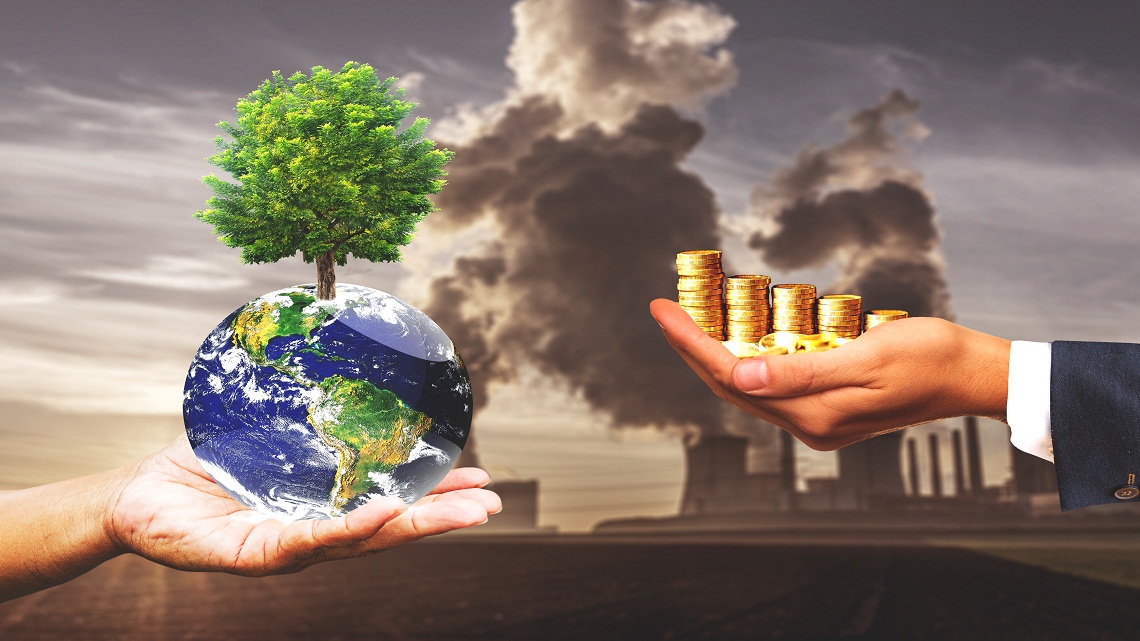
In the silent hum of innovation hubs from Riyadh to Nairobi, a new kind of capitalism is taking root, one that no longer sees the environment as collateral damage but as the foundation of growth itself. Across the EMEA region, entrepreneurs are rewriting the rules of profit and purpose, ushering in what can only be called Climate Capitalism 2.0: an economic movement where restoration isn’t a moral choice, it’s a business strategy.
For decades, the region’s prosperity was built on the extraction of oil, minerals, and raw resources that powered the world but strained ecosystems. Now, as climate realities intensify, the very landscapes once defined by scarcity and heat are becoming laboratories of regeneration. In Cairo, Casablanca, Kigali, and beyond, founders are turning degraded land into carbon sinks, waste into wealth, and scarcity into systems-level innovation.
The Shift from Exploitation to Regeneration
The most profound transformation happening across EMEA isn’t technological, it’s philosophical. Entrepreneurs are moving away from extraction-driven growth toward a regenerative mindset, one that treats nature as an appreciating asset rather than an expendable resource.
In Kenya, blockchain platforms now tokenize carbon credits for farmers replanting trees, allowing them to monetize their stewardship of the land. In Saudi Arabia, real estate developers are embedding biodiversity metrics and water efficiency goals directly into their project KPIs. And along the Great Green Wall of Africa, a vast restoration corridor stretching across 11 nations, entrepreneurs are using technology and community enterprise to transform climate adaptation into economic inclusion. This is capitalism reinvented at the roots: growth through renewal, profit through balance.
Nature Becomes the New Balance Sheet
What defines this next phase of climate capitalism is that nature itself has entered the ledger. Trees, soil, water, and biodiversity are being assigned tangible, tradable value. Nature is no longer an afterthought, it’s an asset class.
The implications are radical. A startup in Morocco developing AI-based water sensors is valued not just on its software but on the liters of water it helps preserve. A solar enterprise in Egypt attracts international capital because every kilowatt it generates displaces fossil energy and earns measurable carbon returns. The logic of value creation is expanding beyond quarterly revenue into long-term ecological dividends.
The most visionary founders in the region understand that restoration can be monetized without compromising integrity. They’re proving that the path to profitability can literally green the planet.
Profit in the Service of the Planet
What makes the EMEA model unique is its pragmatism. It doesn’t preach sustainability as sacrifice; it builds opportunity from necessity. In regions where climate stress is a daily reality, the market case for adaptation is self-evident. Desert farming startups are using hydroponics and AI to grow crops with 90% less water. Circular economy ventures are turning construction waste into building materials. Fintech innovators are building community-based carbon markets that directly reward local land stewards.
This is not philanthropy. It’s smart economics. Every dollar invested in restoration yields multiple streams of return, social, environmental, and financial. In a world where global investors are hunting for credible ESG assets, EMEA entrepreneurs are emerging as frontrunners in designing profitable models of planetary repair.
The Financial Renaissance
Climate Capitalism 2.0 is also reshaping the region’s financial architecture. Gulf sovereign wealth funds, once synonymous with oil-backed wealth, are rebranding through large-scale investments in renewables, green hydrogen, and sustainable logistics. Islamic finance institutions are finding natural alignment between Sharia principles and climate-aligned investing. Impact funds are emerging in Nairobi, Abu Dhabi, and Johannesburg, channeling billions into regenerative agriculture, clean water systems, and circular industries.
These aren’t fringe experiments; they’re signals of a structural pivot. According to emerging market projections, the EMEA green economy could surpass $3 trillion by 2030. That number represents more than decarbonization; it’s the birth of a new economic identity.
Beyond Net Zero
While Western economies are fixated on “net zero,” the EMEA region is quietly designing for net positives. The goal is no longer neutrality but renewal, creating measurable gains for ecosystems and communities rather than simply offsetting harm.
In the UAE, construction firms are adopting regenerative design principles where buildings generate more energy than they consume. In South Africa, drones are being deployed for reforestation, mapping, and soil restoration. Across North Africa, start-ups are integrating traditional ecological knowledge with high-tech monitoring to accelerate land recovery. These aren’t isolated efforts; they form the architecture of a regional restoration economy.
A Model Rooted in Heritage
Perhaps the most powerful aspect of this shift is that it isn’t a Western import dressed in sustainability jargon. It’s deeply rooted in the region’s cultural DNA. The concept of amanah, stewardship, and trust resonates across Arabic and Islamic traditions, reminding leaders that caring for the earth is a moral as well as economic duty.
This heritage-based lens gives Climate Capitalism 2.0 its authenticity. It’s why community-driven projects, ethical finance, and inclusive entrepreneurship have found such natural momentum here. In many ways, the region isn’t adapting to a global sustainability movement; it’s reclaiming values it has always held.
The Next Competitive Edge
As global markets evolve, restoration is emerging as the next great competitive differentiator. The entrepreneurs who can blend ecological intelligence with business acumen will define not only EMEA’s economic future but the moral direction of capitalism itself.
The narrative has shifted. Success is no longer measured only by valuation or scale, but by contribution, how much value a company restores to the world it profits from. Climate Capitalism 2.0 invites a simple but transformative idea: that growth and regeneration are not opposites, but two sides of the same future. Because in this new economy, the most valuable resource isn’t oil, data, or capital. It’s restoration.
To read more, visit EMEA Entrepreneur.
